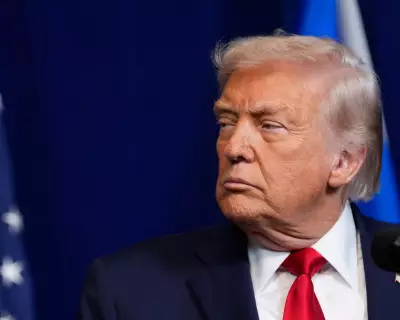
In a significant boost to the British economy and defence sector, the UK has finalised a landmark £4 billion maritime agreement with Indonesia that is set to create 1,000 new jobs across the United Kingdom.
A Strategic Partnership for Maritime Security
Prime Minister Keir Starmer is scheduled to announce this lucrative deal in a call with Indonesian President Prabowo Subianto on Saturday. The programme, spearheaded by British defence firm Babcock, will see the two nations jointly develop capabilities for the Indonesian navy.
The vessels will be constructed in Indonesia using British shipbuilding expertise, ensuring that the intellectual and industrial benefits flow back to UK shores. This approach will support skilled employment in key British maritime centres including Rosyth, Bristol, and Plymouth.
Benefits for Both Nations
For Indonesia, this ambitious scheme promises to unlock major investment in local shipbuilding infrastructure, revitalise fishing communities, and significantly enhance the nation's defence and maritime security capabilities. Crucially, it will also boost food security, which has been identified as one of President Prabowo's top priorities.
In a statement, Sir Keir emphasised: 'This deal with Indonesia is the latest example of how our strong international partnerships are delivering real benefit for people at home in jobs, opportunity and growth.' He further highlighted that as one of Britain's closest G20 partners, this agreement reinforces their joint commitment to global stability and bolsters shared national security.
Building on Recent Defence Export Success
This agreement follows a series of major international defence successes for the United Kingdom. Recent victories include a £10 billion contract with Norway to build the nation's next generation anti-submarine warfare destroyers, supporting 4,000 UK jobs, and an £8 billion deal with NATO-ally Turkey for the export of 20 Typhoon fighter jets, which will provide a further 20,000 British jobs.
Babcock Chief Executive David Lockwood described the Indonesia arrangement as 'a major investment and commitment, building on the strong foundations between nations while driving economic growth for both countries.'
The economic boost comes just months after Chancellor Rachel Reeves pledged to transform Britain into a 'defence industrial superpower', allocating an additional £2.2 billion for high-tech military equipment. This commitment includes spending a minimum of 10% of the Ministry of Defence's equipment budget on novel technologies such as artificial intelligence and drones, with a protected £400 million allocation specifically for new technology development.
Defence Secretary John Healey characterised this increased budget as 'the biggest increase in defence spending since the end of the Cold War', representing a bold step toward the government's commitment to spend 2.5% of GDP on defence by 2027.





